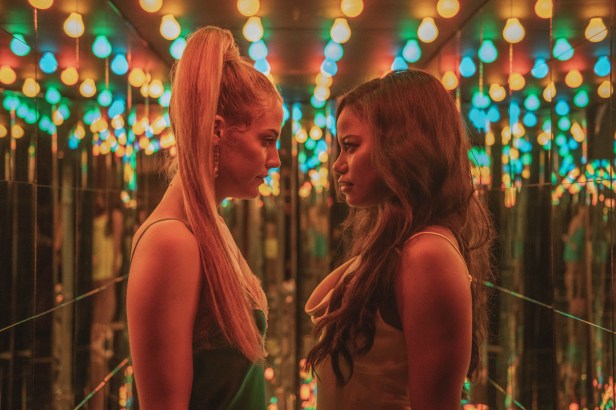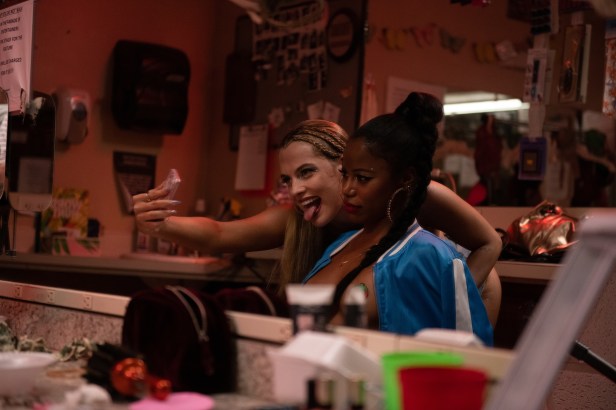Zola (2020)
Y’all wanna hear a story?
Perhaps this is simply what happens when you turn a Twitter thread into a movie.
Zola, the film’s origin lies in a 148-tweet thread posted by Zola the person — A’Ziah ‘Zola’ King — in October 2015, detailing a wild, chaotic road trip from Detroit, Michigan to Tampa, Florida, with the aim of picking up some quick cash stripping in Floridian fleshpots. What unfolded was an odyssey of lies, threats, prostitution, and violence, culminating in … well, not much, really.
And that’s what we get in Zola the movie. Taylour Paige, Ma Rainey’s Black Bottom (2020), is Zola, a Black waitress, and occasional dancer; Riley Keough, Logan Lucky (2017), is Stefani, the white girl who entices her along on the trip; Nicholas Braun, How to Be Single (2016), is Derrek, Stefani’s hapless, hopeless dupe of a boyfriend who is clinging to the increasingly unlikely belief that Stefani loves him; and Colman Domingo, Candyman (2021), is X, Stefani’s roommate.

Except in this context, “roommate” means “pimp.” X and Stefani’s whole plan is to advertise the girls online for sex work, and if Zola isn’t up for that, she at least better be smart enough to keep her mouth shut. Derrek, the poor boat anchor that he is, is left in a motel room and his own devices and winds up falling afoul of some of the local characters. Zola, while not willing to go along with X and Stefani’s game, is canny enough to know that Stefani is literally selling herself short and starts teaching her to market herself better.
All this takes place against the neon-and-pastel Floridian demimonde, the Dirty South of a thousand rap songs, and director Janicza Bravo, Lemon (2017), has an eye for sleazy glamour and telling details. The problem is that the story simply doesn’t add up to much. Thematically, it touches on various interesting topics without interrogating them to the fullest degree: the construction of online personae; the commodification of sex and affection; a touch of cultural appropriation (Keough’s blaccent as Stefani is on point, and not a million miles away from Mullumbimby’s own Iggy Azalea, who must have been screaming down the phone at her agent after seeing this).
Performances are decent across the board, with Keough, who is clearly a rare breed of fearless, and Domingo, who is never not watchable, as the standouts, although Paige’s Zola is too opaque to easily empathize with. Perhaps that’s the point? That we’re all in the panopticon trying to present a curated version of ourselves to the world, and so real connection, even between audience and subject, is rendered impossible. This is a film that takes place as much in virtual spaces as physical ones, with the ping and ding of alert notifications a constant soundtrack to the events unfolding. But if it’s meant as a critique of our current overly connected moment, that too falls flat.

When I don’t get a film, I put the onus on myself to figure out why. Perhaps I’m not the audience, and I’m not culturally equipped to pick up what the work in question is putting down — not every film is for every viewer. That may be the case here, but I’m not feeling it. Even as a picaresque, one-crazy-night, holy-fuck-you-won’t-believe-what-happens-next flick, Zola doesn’t work for me. I’ve had crazier, I do believe it, and I’m not entertained. Taking my own response as a barometer, you’d either have to be a lot more prudish than me to be shocked by what happens here, in which case I’m a little confused as to why you’re even cueing this one up, or if you’re even more jaded than my good self, you’ll be even more disappointed. And if you’re in neither camp and this one does tick all the right boxes for you, feel free to drop me a line, because frankly, I’m baffled.
3 / 5 – Good
Reviewed by Travis Johnson
Zola is released through Sony Pictures Australia